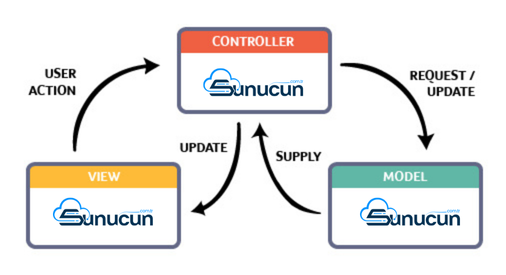What is a Framework? – What Does It Do?
A framework is a foundational structure that facilitates application development by providing a specific set of guidelines, tools, and a framework. In various fields such as software development, web design, or project management, frameworks speed up the development process and enhance efficiency. In this article, we will explore what a framework is, its types, advantages, and areas of application.
Definition of Framework
A framework can be defined as a platform or structure used to build something. In software development, frameworks typically include pre-written code, libraries, and APIs. Developers can utilize these components to create applications, thus eliminating the need to write everything from scratch. This saves time and ensures consistency and adherence to best practices.
Frameworks are often associated with specific programming languages or technology stacks. For example, popular frameworks include React and Angular for JavaScript, Django and Flask for Python, and Laravel for PHP.

Types of Frameworks
Frameworks come in various forms depending on their purposes and application areas. Here are the most common types:
- Web Frameworks: These frameworks are specifically designed for web development. Examples include Laravel (PHP), Django (Python), and Angular (JavaScript). They provide the necessary tools to create dynamic websites and web applications.
- Mobile Frameworks: Used for mobile application development, frameworks such as Flutter and React Native enable developers to build cross-platform applications for both iOS and Android.
- Desktop Frameworks: Frameworks like Qt and Electron help in developing desktop applications for various operating systems.
- Game Development Frameworks: Frameworks like Unity and LibGDX provide tools and libraries for game development, including graphics, physics, and sound integration.
Advantages of Using a Framework
There are many advantages to using a framework:
- Efficiency: Frameworks often come with pre-written functions, significantly reducing development time. Developers can focus on creating unique features.
- Consistency: When developers adhere to the rules set by a framework, they ensure that their code is consistent, maintainable, and scalable. This is a significant advantage for large teams working on complex projects.
- Community Support: Popular frameworks usually have large developer communities. This means that when you encounter issues or need help, you can find support through forums, documentation, and tutorials.
- Security: Many frameworks offer built-in security features to protect against common vulnerabilities. This is crucial for maintaining user trust and complying with data protection regulations.
- Modularity: Most frameworks allow developers to choose only the components they need, enabling them to customize their applications. This prevents unnecessary code and helps keep projects lightweight.
Applications of Frameworks
Frameworks are used in various sectors and fields:
- Web Development: Frameworks facilitate the creation of websites and web applications, enabling developers to build feature-rich applications quickly. They are especially ideal for dynamic content and user interactions.
- Mobile Development: Mobile frameworks allow developers to create applications that work across multiple platforms, reducing development costs and time.
- Data Science: Frameworks such as Pandas and Scikit-Learn provide tools for data analysis and machine learning, making it easier to work with large datasets.
- Game Development: Game frameworks simplify tasks such as rendering graphics, processing inputs, and managing game physics, thereby accelerating the game development process.
- IoT (Internet of Things): Frameworks used for IoT applications facilitate communication between devices and enhance efficiency. Platforms like Thingstream are popular in this domain.
Conclusion – The Importance of Frameworks
Frameworks are essential tools in modern development. They provide developers with the necessary structure and resources to create applications efficiently and effectively. By using frameworks, developers can focus on building innovative features while ensuring consistency, security, and sustainability.
Given the rapidly evolving technology landscape and the ever-changing user needs, choosing the right framework can have a significant impact on your project’s success. Especially in web and mobile application development processes, frameworks enable better results. With a good framework, it is possible to not only develop faster but also produce higher-quality products. Developers should consider the project requirements, target audience, and long-term goals when deciding which framework to choose.




